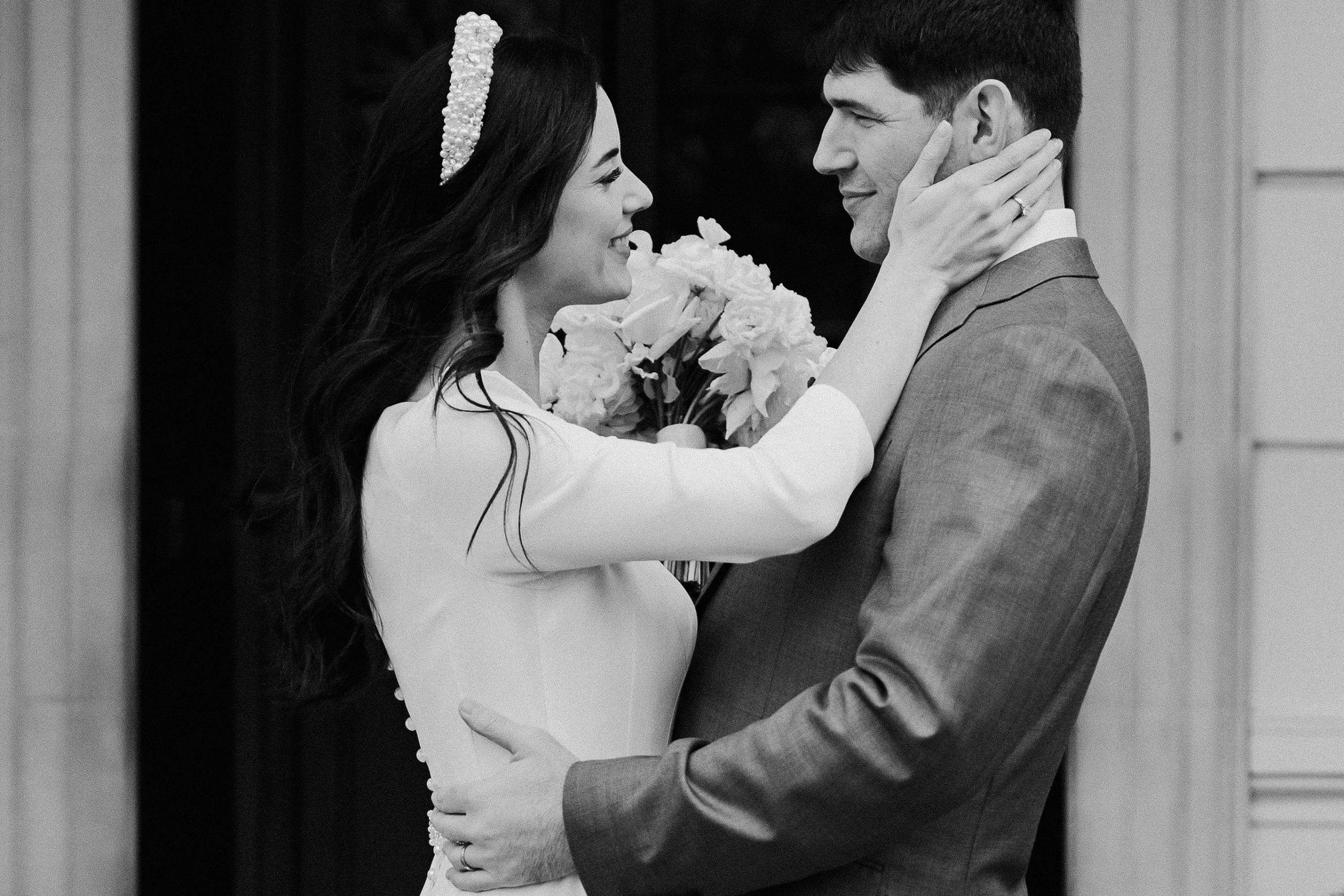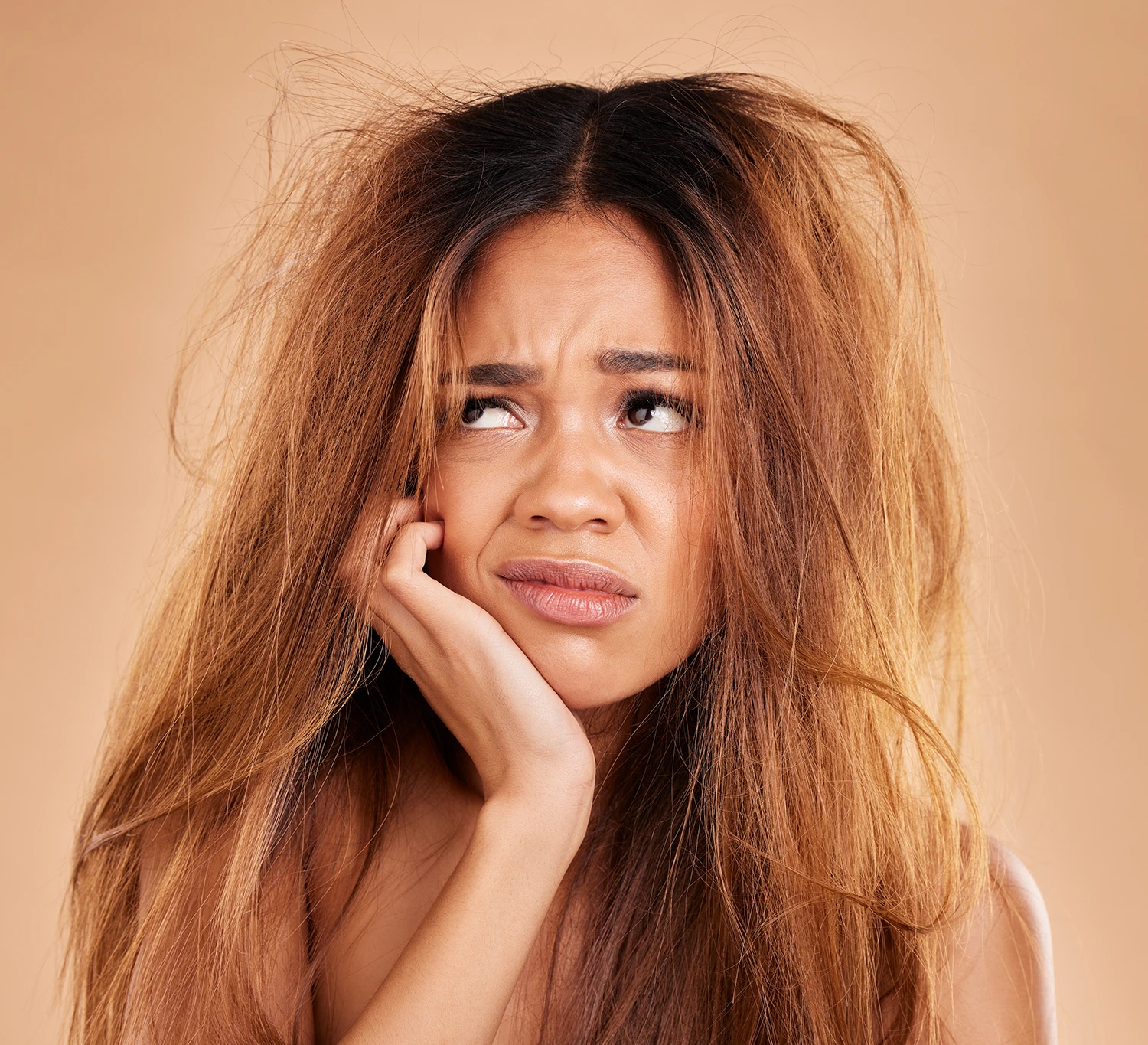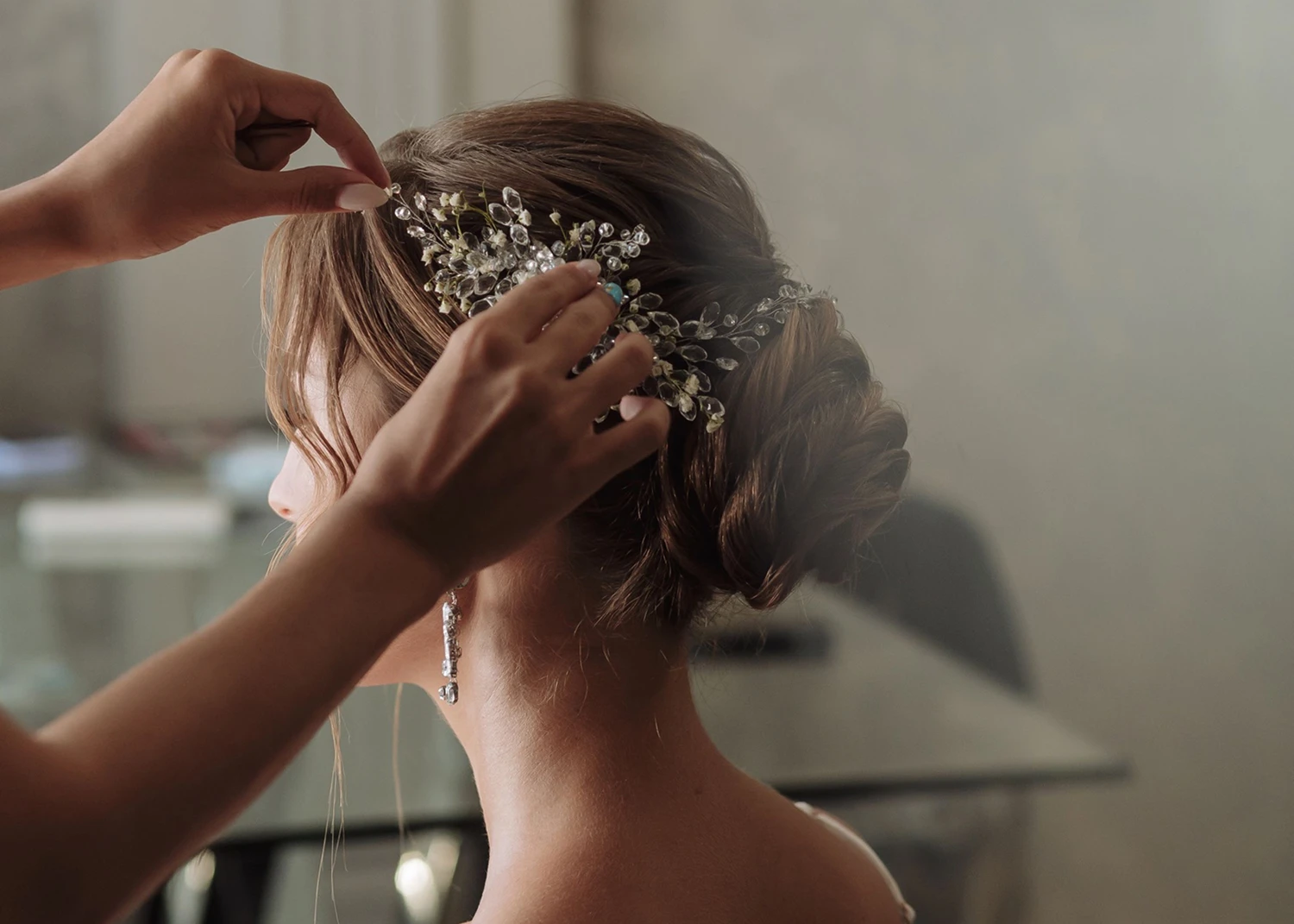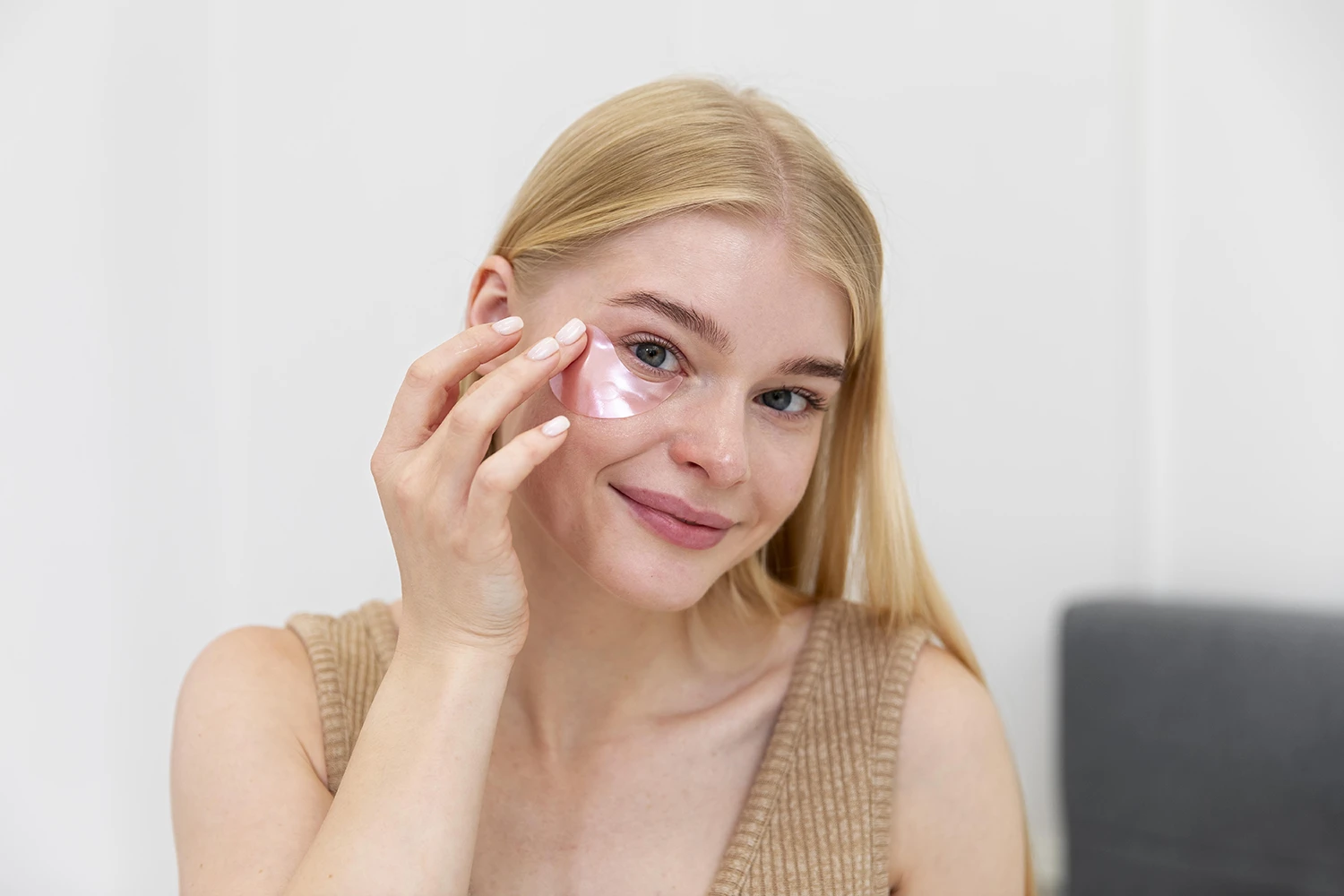Do you find that large amounts of hair fall down the drain when you shower? Maybe you’ve noticed a little more of your scalp showing or an increased amount of thinning hair? This is not normal. Many women suffer from hair loss, medically known as alopecia.

NHS studies show that around 8 million women suffer from hair loss in the UK.
Female hair loss causes a great psychological impact, many women begin to experience lower self-esteem and increased stress – which exacerbates hair loss.
Losing hair, to a woman, whether in youth or at some vulnerable point in life, is a difficult thing to accept and can undermine their confidence a lot. That being said, there are ways to prevent, alleviate or correct the problem.
How does hair loss affect self esteem?
Hair loss is a difficult subject for anyone to deal with. Even more so for women, as it generates discomfort and a great deal of maintenance.
On the face of it, this subject seems to refer only to men, but this issue can greatly affect women as well.
Be it a simple cause like a vitamin deficiency, stress or something more complex, like a health condition.
While the issue of male hair loss is seen as something natural and part of the ageing process, for women it often generates shame and embarrassment. It shouldn’t be like that, women also suffer from inevitable realities.
According to the same study by Nioxin with 2000 women: 14% refuse to look in the mirror, 12% do not post unedited photos on social networks and 7% have cancelled dates because of hair loss. Hair loss generates a lot of insecurity and affects women’s daily lives.
The belief that it is a condition restricted to men, coupled with the fear of dealing with it, prevents many women from seeking help.
Can hair loss be a sign of something serious?
Hair loss can be an indicator of other problems to be treated, as hair is treated, care extends throughout the body.
It’s time to find out why your hair is falling out, thinner or your scalp hair is more evident.
If you are asking yourself: “why is my hair falling out?”, thinner or your scalp hair is more evident. It’s time to find out!
Here are some tips to discover the main causes of hair loss in women and understand what should be done!
What factors can cause hair loss and thinning?
The most common hair loss causes can be: medical conditions, treatments, hormonal changes, genetic factors and extreme stress, among others.
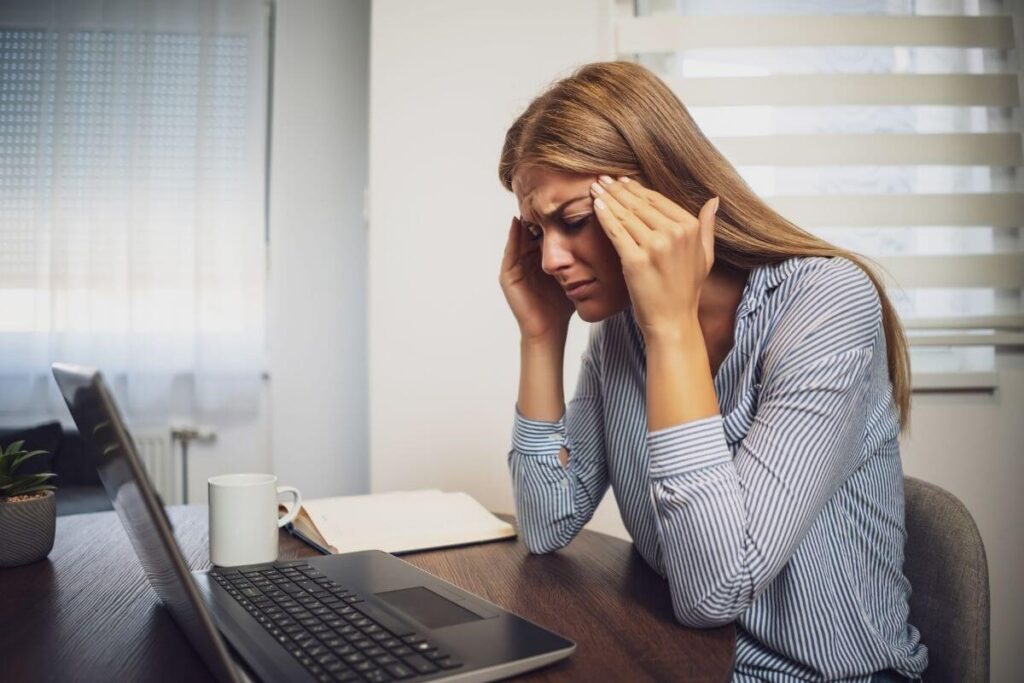
1. Does stress make your hair fall out?
Stress can often interfere with the functions of our body, compromises our health and when experienced in excess, can cause hair loss. It increases androgen (male hormone) levels and alters the hair growth cycle. You may encounter scalp problems like dandruff or others related to your eating habits.
How do I know if my hair is falling out due to stress?
A very stressful event can alter the hair’s life cycle. This cycle is divided into three phases: growth, rest and fall.
When enduring stress, more hair is pushed into the shedding phase. The shedding becomes noticeable after three to six months and the hair grows back as your body recovers.
Research shows that women with a stressful routine are 11 times more likely to have hair loss.
Chronic stress can cause malting – officially known as Telogen Effluvium – this happens when stressful events or severe systemic infections cause certain hair follicles to stop growing prematurely and enter the telogen (resting) phase.
Hairs affected by Telogen Effluvium will remain in the resting phase for about three months before they begin to fall out.
Hair loss after covid
The research volume on hair loss has increased considerably in the last years, due to the relationship between covid and Telogen Effluvium (it’s one of the side effects of covid).
Signs of hair loss usually appear 6 weeks after contact with the virus. Others who have not been infected may also experience hair loss due to all the stress generated. The hair will grow back if nothing more serious happens.
How to stop stress hair loss?
Start by being more attentive to your basic needs, feel the pleasure of stopping for a drink of water, respect the intervals between meals, and don’t delay taking care of your beauty. Allow time for a little pampering, and every time you do, think about how deserving you are.
Do everything with full attention, as you pay more attention and take care of what really matters, the rest won’t have as much effect. Gradually you will feel safer to make decisions and avoid unnecessary stress.
When it comes to advice on how to avoid stress, it’s very easy to say and hard to do. At first, just thinking about breaking with seemingly unavoidable responsibilities and daily occurrences, changing and cultivating new habits, already sparks resistance.
The key is to avoid this reaction because both the mind and the body will begin to act defensively to the “possible threat”. It costs to change habits and behaviours.
In the everyday life rush, you inevitably become more careless and end up settling into bad habits.
Stress related hair loss treatment
“It is very important to keep in mind that starting a hair treatment to restore the hair’s aesthetic appearance may not be enough to improve the hair loss issue. The recommended thing is to do an oral treatment prescribed by the doctor and another one with a trichologist directed to your scalp. In addition, exfoliating, cleaning, and activities that stimulate hair growth are essential, talk to your hairdresser”. Izabella Bordignon
2. Hair loss from weight loss / diet change
The body can feel a lack of nutrients when the diet is too restricted. And that can result in hair loss. Protein is one of the main food groups that help to maintain hair health, so check with your doctor to make sure you’re getting enough in case of hair loss.
Hair loss after bariatric surgery
Bariatric surgery is not merely aesthetic surgery, it is an extremely invasive medical procedure.
Hair loss can have several causes such as endocrinological, medical, infectious, traumatic, and nutritional – this being one of the most recurrent.
When the body does not receive enough vitamins and minerals, the hair is the first to show signs of this deficiency.
Therefore, it is very important to follow all medical guidelines in the postoperative period. How to have a balanced diet, practice physical exercises, supplementation – in certain cases – and make a periodic surveillance of nutritional deficiencies.

3. Causes of hair loss: iron deficiency
Iron deficiency in women is often caused by heavy menstrual periods, very regular blood donations, and poor diet. It is common to find this problem in young women and identify hair loss by the low level of this mineral in the blood.
Before changing your diet or taking any supplements, take tests to check your body’s iron level and if it’s low, include some foods such as red meat, spinach and vegetables in your diet – according to the guidance of a doctor.

4. Vitamin deficiency causing hair loss
Vitamin D and B12 deficiency is very common in hair loss sufferers. Vitamin B12 is found in animal foods and vitamin D enters the skin through sun exposure.
Vitamin D deficiency rates have increased in recent years because of our way of living.
We tend to protect ourselves and cover ourselves from the sun, to always seek shade and our daily habits are usually indoors. We were educated to use high SPF to avoid burns and the weather is not always favourable for us to sunbathe properly.
Having this type of exam up to date can prevent a number of problems, maybe you are feeling exhausted and stressed from the lack of these vitamins.
Medical advice and proper supplementation will help correct hair loss and treat other symptoms.
5. Can hairstyles cause hair loss?
Wearing your hair in a very tight ponytail, pulling your hair very often, and typing your hair up when it’s wet, can break your hair strands.
If you notice that your hair is weaker, breaking easily, but there is no difference in your scalp. This could be one of the causes, investigate with your hairdresser.
Tips to prevent hair breakage and frizz
- Let your hair dry well before tying it and never sleep with it wet.
- Sleep with your hair down, the strength of the elastic can strain the roots and cause the hair to break.
- Do you usually just tie your hair up, because when you wake up your hair is unruly? Sleeping in a silk cap helps to get your locks in place. It’s a worthwhile investment!
- The silk scarf can also help on a bad hair day, in addition to maintaining the style.
- Hair on your face bothering you, or feeling hot from the sun? Opt for hair ties that are covered in fabric or free of metal plates.
Golden tip: Izabella indicates the use of microfiber towels to reduce hair drying time at home. They help reduce frizz and make your hair shiny.
6. What factors affect hair texture?
Have you ever noticed how your hair is not the same as it was in childhood, even without making any radical changes? Your environment interferes with the texture and appearance of our hair.
The impact of pollutants, minerals in the water, exposure to the sun, frequent contact with seawater and the heat of hot shower water. They can compromise the health of the hair.
Hair dyes, chemicals, styling tools… everything we use to maintain our look can also make hair thinner if not properly cared for.
- In the bath: avoid hot water and use a shower filter.
- To deal with sudden changes in temperature: avoid using excessively heavy ointments and creams. Opt for products that penetrate the hair fibre
- When exposed to the sun: protect your hair with a hat. If there is any damage from overexposure, moisturise your hair with a mask.
7. Not taking care of your scalp
All care starts with the scalp. A healthy scalp is a prerequisite for good hair growth.
“When there is some buildup of residue or any blockage on the scalp, the hair cuticle can become suffocated and unable to ‘breathe’.” Izabella Bordignon
The scalp can provide clear signs that indicate the health of the hair. Problems like dermatitis and dandruff are indicators that your hair requires more attention. Perhaps, showing an incompatibility with other chemical products or procedures.
How do you get rid of dry scalp?
There are scalps that are prone to dryness, if this is the case for you, you can try simple and practical solutions such as using pure coconut oil.
Application must be done for several nights in a row, before going to sleep and the product must be removed the next day by rinsing. Gradually, even the thickest scales will decompose and come off the scalp.
Any moisturising product can leave residue, so Izabella’s tip here is to wash your hair often and use a lightening shampoo to remove the coconut oil buildup.
8. Can birth control cause hair loss?
Birth control pills can also affect hair health, those with oestrogen can make your hair look better, while progesterone contributes to hair loss – it’s not a rule of thumb, each body will react differently.
Whenever you start treatment or change your birth control, check with your doctor for side effects and be very careful.
If you have noticed and confirmed the cause of hair loss, see a dermatologist. In most cases, a specific shampoo is indicated for the treatment and supplementation of vitamins.
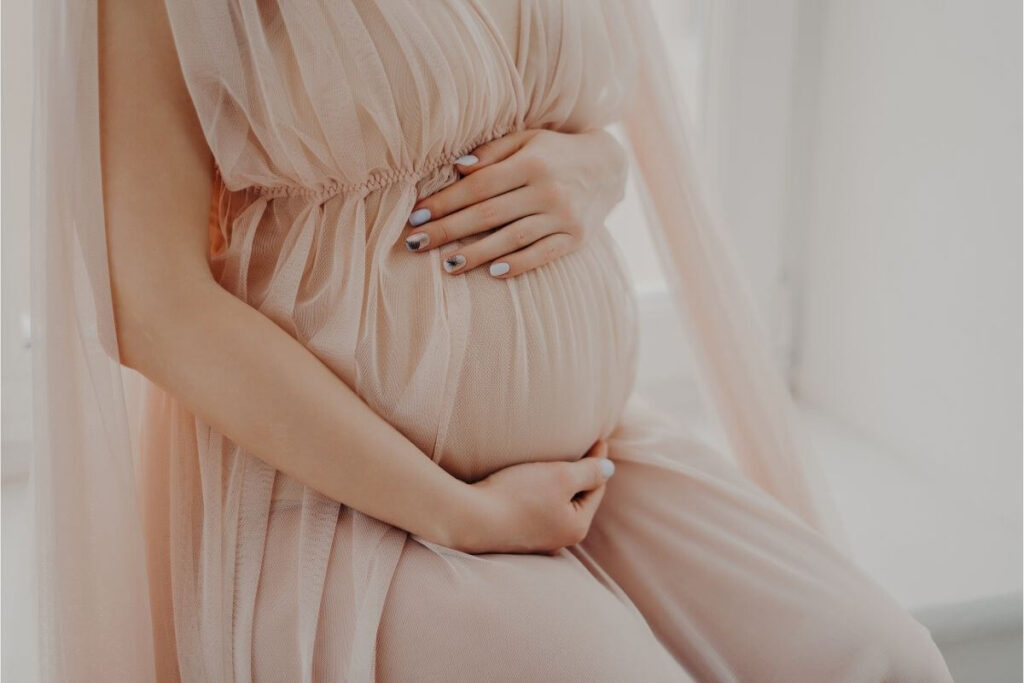
9. Hair loss in pregnancy
During pregnancy, women may have thicker and more lush hair. But it is also very common to encounter hair loss due to hormonal changes.
Hair loss usually happens within 3 to 4 months after giving birth, it is not severe enough to cause permanent loss or baldness. This is because in pregnancy more hair enters the resting phase – part of the normal hair loss cycle.
Can you prevent hair loss after pregnancy?
Preventing hair loss in pregnancy will not always be possible, but some precautions such as those already mentioned in this article can make a difference. If you eat well, check for lack of vitamins and iron in the blood. Be careful when combing and fixing your hair, avoid excess hair manipulation.
10. Hair loss and menopause
Menopause has a number of uncomfortable symptoms. As a result, hair and skin problems often go unnoticed.The skin can become thinner and drier, the hair can become drier and lose volume.
Menopause reduces the production of oestrogen and progesterone, these hormones are responsible for making hair and skin more luscious. With the fall of these hormones, the hair becomes thinner and the skin loses a little elasticity – creating expression lines and accentuating wrinkles.
Izabella indicates: “use a hairbrush with natural bristles – they take the oil from roots to ends – and if you sweat too much, dry shampoo can bring relief to symptoms. Always carry one in your bag.”
11. Hair loss with hypothyroidism
Tiredness, dry hair, brittle nails, and weight gain can all be symptoms of hypothyroidism. Any change in the thyroid can cause hair loss and postmenopausal women are the most affected. If you notice any of these symptoms, consult your endocrinologist.
How much hair loss is normal?
Don’t worry if you find some hairs on your clothes or on your hairbrush. On average we lose 50 to 100 hairs a day and we don’t even realise it. Hair loss will only require more attention if your hair starts to get thinner or starts to fall out in clumps.
How to make hair grow thicker again?
The goal of any hair loss treatment is to stimulate the hair follicles to function at their best. Choose the treatment that is right for you within realistic goals.
Beware of any false advertising, with proposals for miraculous cures. The best way will always be prevention. You can make several transformations in your hair, but always respect your time and your limits.
Avoid using certain types of chemicals if your hair can’t handle it, make a hair schedule, moisturise your hair when necessary. Change the shampoo if it no longer works or if it is intended for another type of hair. Keep your hair healthy always.
A golden tip that Izabella always recommends to her clients is to use Rosemary Essential Oil mixed with another oil for moisturising. And then wash the wires normally. Rosemary has natural properties that stimulate hair growth. It is a viable and easily found option.
Female hair loss treatment
When you discover any problem don’t try to ignore it, the faster the diagnosis the better.
There are many different types of hair loss, you may experience thinning hair or total hair loss. The loss can affect any age group, the emotional, be sudden or gradual.
Where do I go to seek help?
In any case, schedule an appointment with your general practitioner (GP) to identify the true cause of the hair loss and rule out any other reason in your assessment. That way, your GP will be able to refer you to a dermatologist and your treatment will take place assertively.
Do not cling to hypotheses and do not start any procedure from them, there is a risk of making a mistake in the assumption of hair loss and in the treatment.
Seek reliable advice from authoritative sources, because there are many ineffective, high-value, and false treatments.

Thinning hair in women: what can women do about hair loss?
If you lose a lot of hair because of your condition, don’t think that you’ve lost your attractiveness, much less deprive yourself of everything that life can offer. Beauty consists above all in accepting yourself and feeling good.
When you undergo treatment like chemotherapy or anything else that causes substantial hair loss. Remember to keep smiling – it will be the beginning of everything – if you wish you can try on wigs, hair extensions, use scarfs and makeup or even not cover yourself.
How to prevent hair loss?
- Be careful with your food, with your body, cultivate healthy habits and do regular exams when any different symptoms arise.
- The body gives signs and warnings, its care can start with the hair and extend throughout the body. Don’t get used to small health problems that can trigger bigger ones.
- Do not use any type of product on your hair, the cheap is expensive. And the specifications should not be ignored.
- Avoid harsh treatments such as hot rollers, curling irons, hot oil treatments and perms.
- Opt for a wide comb and use a detangler to make brushing your hair easier. Be gentle with him, don’t just pull out the toughest strands.
- Check to see if your long-term remedies have any hair loss side effects.
- Protect your hair from aggressive agents such as the heat of the sun, the dryer and the shower.
- Take care of the seawater action wires and the chlorine in the pool water. In Hair Colouring: How To Make It Last you learn the main care to preserve the hair of these and other agents.
Can a hairdresser help with hair loss?
Your hairdresser may be the first to diagnose hair loss if you visit a salon regularly. It helps in the care and maintenance of hair.
Every hair procedure must be done with the proper technique and knowledge, so it helps to avoid hair loss due to wrong attempts by the client in your home, the famous: “do it yourself”.
He joins forces with other professionals to deliver the best hair loss treatment. After the trichologist prescribes the appropriate treatment, the hairdresser can provide this care.
Everyone wants shiny, vital and healthy hair, but not everyone is willing to dedicate themselves to its care. Hair loss affects self-esteem, self-confidence and can indicate what is compromising your health and well-being.
If you have a care routine, you are attentive to the needs of your hair and seek to protect it. It manages to soften some unavoidable hair damage and makes it easier to reverse it.
Have you put off your hair care too much or need to refresh your look? Then it’s time to book an appointment at Izabella Bordignon London.
You can call us or send us a message via WhatsApp by clicking here.
Sources
https://www.health.harvard.edu/staying-healthy/treating-female-pattern-hair-loss
https://www.aad.org/public/diseases/hair-loss/insider/shedding
https://www.ncbi.nlm.nih.gov/pmc/articles/PMC1261195/
https://www.healthline.com/health/does-diabetes-cause-hair-loss
https://onlinelibrary.wiley.com/doi/epdf/10.1111/bjd.20628
https://www.ncbi.nlm.nih.gov/pmc/articles/PMC5315033/
https://www.nbcnews.com/health/health-news/female-hair-loss-menopause-treatment-study-rcna16389
https://www.healthline.com/health/smoking/does-smoking-cause-hair-loss
https://www.gq-magazine.co.uk/grooming/article/how-to-know-if-youll-go-bald
